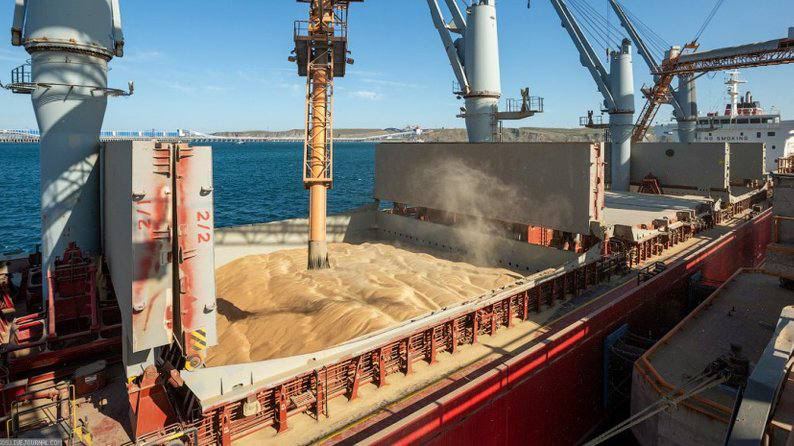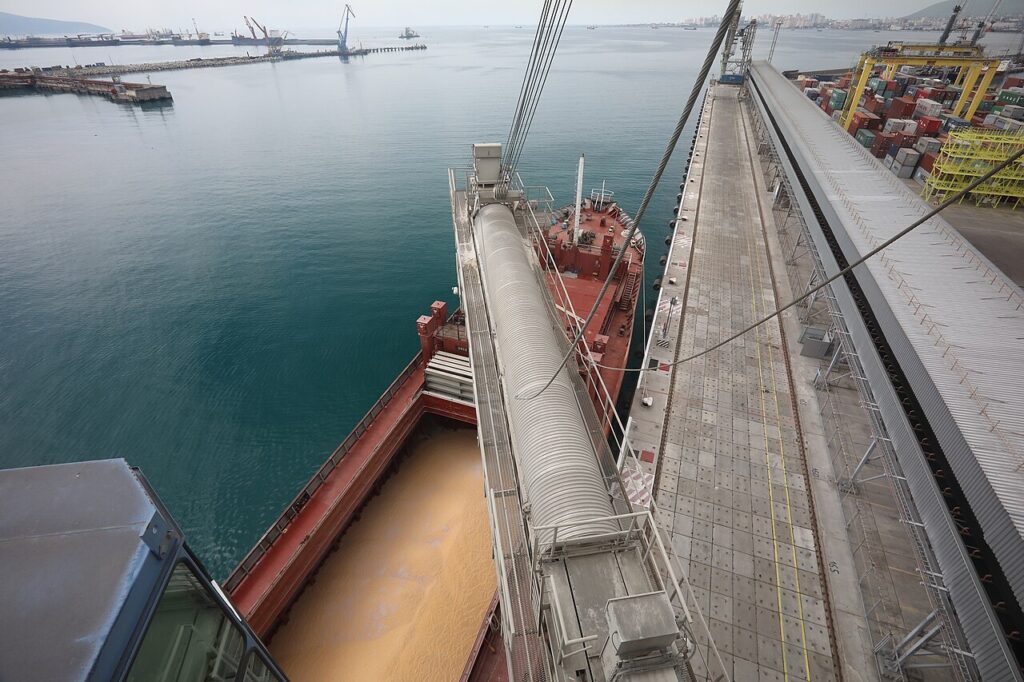Russian 1,000-ship network generates millions in military funds from stolen Ukrainian grain in Iran, Turkiye, Egypt

Russia has turned stolen Ukrainian grain into a global business. Moscow is selling so-called “Russian” wheat in 70 countries, including Egypt, Turkiye, and Iran, according to the Center for National Resistance.
Kyiv has recently revealed that Russia owns 42 ships transporting stolen Ukrainian grain and coal. Every ship carrying oil or grain brings Moscow’s more funds to support its military operations. The Ukrainian Intelligence says that over 1,000 ships and 155 captains are involved in transporting weapons and stolen goods from temporarily occupied Ukrainian territories.
Russia is stealing Ukrainian wheat from occupied Luhansk, Donetsk, Kherson, and Zaporizhzhia oblasts. Ukrainian officials estimate that by 2025, Russia has illegally exported around 15 million tons of grain, mostly wheat, from these territories.
“In the new season, the Kremlin is again trying to maintain its market dominance—at the expense of temporarily occupied Ukrainian territories,” says the Center for National Resistance.
Russia collects and exports wheat from occupied Ukrainian lands under the guise of Russian origin.
“This is large-scale grain plundering—a crime for which all involved will be held accountable, from officials to international intermediaries,” adds the agency.
Previously, Euromaidan Press reported that Ukraine plans to appeal to the EU to impose sanctions on Bangladeshi companies importing wheat from Russian-occupied territories. Intelligence reports indicate that over 150,000 tons of such grain have already been shipped from the Kavkaz port.
The Ukrainian embassy has sent multiple notes to Bangladesh’s Foreign Ministry requesting the rejection of shipments containing stolen grain, but officials in Dhaka have ignored these appeals.
